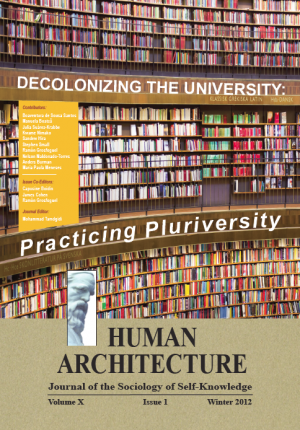Journal Article — Activist Learning vs. Service Learning in a Women’s Studies Classroom — by Anne Bubriski and Ingrid Semaan
$15.00
Various scholars assert that teaching and discussing feminist literature written by and about women constitutes activism. While we agree that integrating Women’s Studies into college and university curricula is a radical act and an important step toward broader social change, we argue that Women’s Studies programs must see promoting feminist scholarship as a beginning point, and not an end point.
Description
Abstract
Various scholars assert that teaching and discussing feminist literature written by and about women constitutes activism. While we agree that integrating Women’s Studies into college and university curricula is a radical act and an important step toward broader social change, we argue that Women’s Studies programs must see promoting feminist scholarship as a beginning point, and not an end point. We argue that faculty members must teach students to merge feminist theory with social action in order to transform systemic gender, class, and race inequalities. At a time when there are few strong and vibrant social movements and few students who participate in movements for social change, one way to include activism in the classroom experience is to structure it into course assignments. Based on a pilot of an activist learning project for a Women’s Studies class, we make recommendations to faculty members on how to get the best results from such a project.
Recommended Citation
Bubriski, Anne, and Ingrid Semaan. 2009. “Activist Learning vs. Service Learning in a Women’s Studies Classroom.” Pp. 91-98 in Sociological Re-Imaginations in & of Universities (Human Architecture: Journal of the Sociology of Self-Knowledge: Volume VII, Issue 3, 2009.) Belmont, MA: Okcir Press (an imprint of Ahead Publishing House).
The various editions of Sociological Re-Imaginations in & of Universities can be ordered from the Okcir Store and are also available for ordering from all major online bookstores worldwide (such as Amazon, Barnes&Noble, and others).
Read the Above Publication Online
To read the above publication online, you need to be logged in as an OKCIR Library member with a valid access. In that case just click on the large PDF icon below to access the publication. Make sure you refresh your browser page after logging in.








